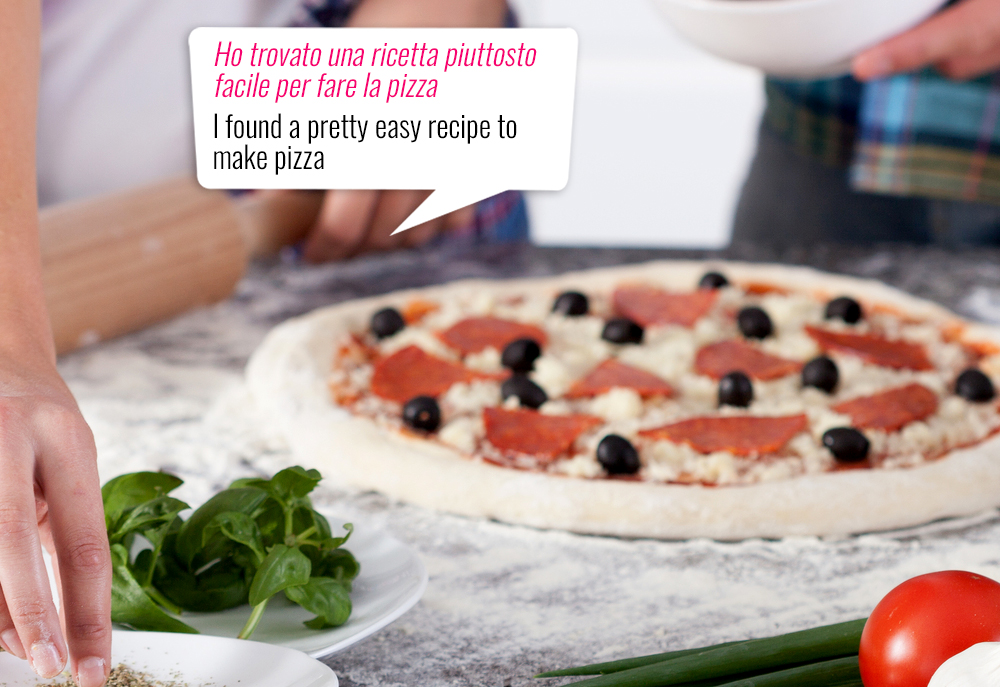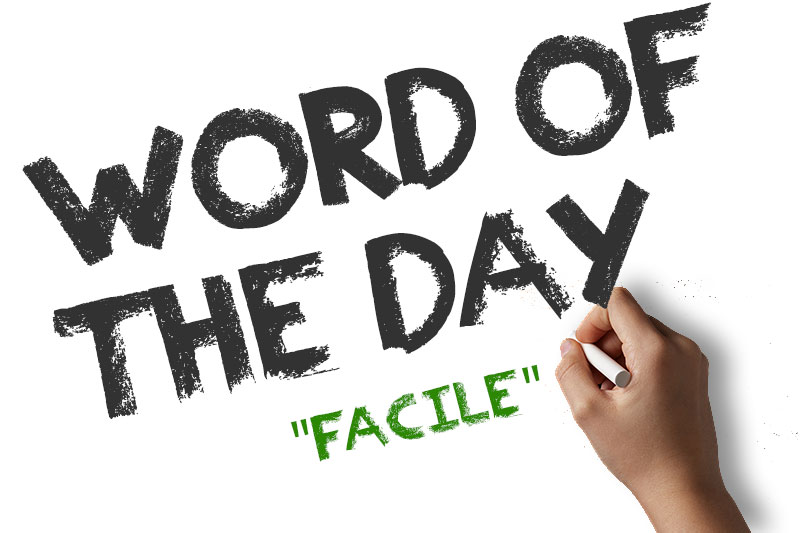Today’s word is easy in every sense!
Easy because it is incredibly common, because you won’t find it hard to pronounce and because it means just that: easy! Facile (fah-tchee-lai) is an incredibly common word, one you need to have in your Italian daily vocabulary.
Facile comes from the Latin adjective facilis, a derivative of the verb facere, “to do,” and was already common in ancient Rome. Facile can be used in all contexts and in all registers: you won’t find such an ubiquitous little adjective, exception made, perhaps, for its cousin difficile, which means “difficult” and often goes hand in hand with it.

Is everything “facile,” when it comes to facile? Well, yes, provided you remember it is a word that you find in every context. So, you’ll have era facile l’esame? (“was the exam easy?”), but also è facile capire perché non andate d’accordo (“it’s easy to see why you don’t get along”): you can use it for concrete things and abstract ideas, just the way you use “easy” in English.
The adverb derived from facile, facilmente, is just as common: puoi trovare quel libro facilmente, basta andare online (“you can find that book easily, you just need to look for it online”).
Sometimes, you may come across the noun facilone, which refers to someone who hates thinking and is a bit superficial, perhaps even a bit silly. A facilone loves faciloneria, the quality of those who don’t think much about the consequences of things.

Ho trovato una ricetta piuttosto facile per fare la pizza
I found a pretty easy recipe to make pizza
Dalla stazione, l’università è facilmente raggiungibile con il bus
From the train station, university can be reached easily by bus
E’ un bravo ragazzo, ma un po’ troppo facilone
He’s a good guy, but a tad too superficial





























